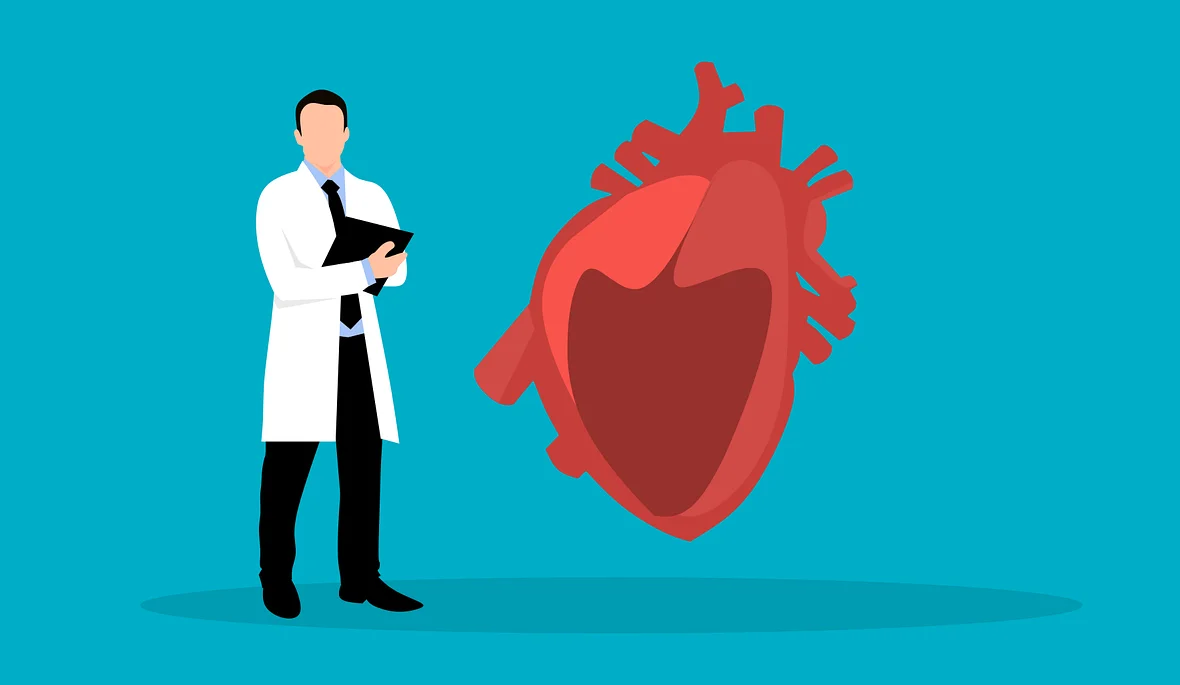- Home
- Addiction Guides
- The Effects of Cannabis on Your Heart
The Effects of Cannabis on Your Heart
Cannabis is the most commonly abused addictive substance across the world after alcohol and tobacco.
Whilst more and more people are consuming cannabis, and more and more countries are considering legalising cannabis, there are now many studies that prove the relationship between cannabis and the damage to the cardiovascular system.
If you are worried about the health concerns surrounding addiction to cannabis, then continue reading below to better understand how cannabis affects the heart as well as other areas of the body.
How Does Cannabis Affect the Heart?

Unfortunately, there is now a strong link between smoking cannabis and damage to the heart, including heart disease.
It has now been proven that those with heart issues and heart disease develop more chest pain when they smoke cannabis.
Cannabis affects the heart in many different ways.
For example, cannabis has now been proven to make the heart beat faster, whilst increasing blood pressure at the same time. This begins to happen as soon as the individual consumes cannabis, and can also become a long-term effect [1].
An increase in an individual’s heart rate whilst smoking cannabis is known as tachycardia, which is used to describe when an individual’s heart rate is beating too fast and is now a health concern.
This is because cannabis contains cannabinoid, which raises heart beats, and widens blood vessels. Because of this, people who smoke cannabis are a lot more likely to experience a heart attack during their lifetime than those who do not.
When an individual consumes cannabis, the THC (tetrahydrocannabinol) within cannabis travels through the body to the heart and cardiovascular system, whilst also passing through the lungs [2,3].
Studies have also now shown that THC also causes inflammation and damage to endothelial cells. These cells are responsible for protecting the blood vessels. When it damages these blood vessels, it creates inflammation and oxidative stress, meaning that it is damaging your organs and your heart [3].
If you are at risk of developing heart disease, you should avoid smoking or consuming cannabis at all costs.
If you are already consuming cannabis and are worried about the health implications, then you should speak to your local GP as soon as possible to talk about your concerns.
How Does Cannabis Affect Other Areas of the Body?

If you abuse cannabis regularly, then it not only affects your heart but other areas of your body too.
For example, a cannabis addiction can change the way your brain functions and operates, as well as your mental health. In addition to this, it also affects your lungs.
1. Brain Health

Consuming cannabis regularly over an extended period not only affects your heart but your brain too.
Cannabis changes the way the brain functions. In particular, it changes an individual’s memory, and ability to learn new skills, process new information, coordinate, make good decisions and handle emotions [4].
These side effects on the brain take place almost immediately, and the initial effects last for up to 24 hours. However, smoking cannabis regularly can have some long-lasting effects on the brain [4].
In addition to this, consuming cannabis regularly affects the brain’s development.
When a child under the age of 18 consumes cannabis, it can stunt their development in terms of their memory, attention, learning ability and ability to problem-solve [4].
In particular, pregnant mothers who consume cannabis whilst pregnant are putting their children at risk of these defects [5].
Cannabis has also now been proven to affect an individual’s ability to perform well at school or work, with many youths who smoke or consume cannabis failing exams and job interviews [5].
The impact of cannabis abuse on the brain depends on several factors which include the following.
- How much THC was in the cannabis
- How frequently do they use cannabis
- How old they were when they first started abusing cannabis
- Whether they abuse other drugs or addictive substances at the same time
2. Lung Health

Unfortunately, a lot of people who consume cannabis also suffer from severe lung issues later in life. This is because a lot of people smoke cannabis. However, there are several different ways to consume cannabis, including the following [4].
- Cigarettes, or joints
- Bongs or pipes
- Blunts or cigars
- Bowls
However, smoking cannabis has a lot of negative health implications on the lungs.
Once cannabis is inhaled, it damages the lung tissues, causing damage to the lungs itself, causing scarring and damage to the blood vessels surrounding the lungs [4,5].
Cannabis smoke carries just as many unhealthy and dangerous toxins and chemicals as tobacco does, which is why people who smoke cannabis every day cause serious damage to their lungs.
Due to this, those who smoke cannabis put themselves at a greater risk of developing lung cancer, continuous cough and chronic bronchitis [4,5].
3. Mental Health

Numerous studies have also now proven that consuming cannabis regularly hurts an individual’s mental health.
Below are just some of the ways that consuming cannabis hurts an individual’s mental health.
- Depression
- Anxiety
- Increased appetite (commonly known as the munchies)
- Difficulty in remembering information
- Difficulty in processing information
- Delayed responses
- Issues with coordination
- Paranoia
- Hallucinations
- Impaired judgement and poor decision-making skills
If you suffer from an addiction to cannabis alongside a mental health issue, then you will be diagnosed with a dual diagnosis.
A dual diagnosis is used to diagnose anyone who suffers from both conditions at the same time.
Unfortunately, suffering from a dual diagnosis does make it slightly harder to recover from your addiction, as the two conditions and their symptoms can sometimes become confused.
If you suffer from a mental health condition alongside an addiction, then you will benefit from attending rehab.
Treatment for an Addiction to Cannabis

If you think you are addicted to cannabis and are worried about the health consequences, in particular the consequences to your heart, then you should seek help as soon as possible.
Cannabis is known as a gateway drug, which is why people who are addicted to cannabis must get the help they need before their addiction becomes more serious or they start to experiment with different drugs and substances in search of a new ‘high.’
You can start to get the help you need by talking to your local drug and alcohol rehab team, to see what kind of treatment you might need to get back on track.
Alternatively, you can speak to your local GP or a member of the Rehab Recovery team for help and support.
Speak to a member of the Rehab Recovery team today by calling us on 0800 088 6686 or by visiting us online at www.rehab-recovery.co.uk for free, helpful treatment advice and support.
References
[1] Sidney S. Cardiovascular consequences of marijuana use. The Journal of Clinical Pharmacology. 2002;42(S1):64S-70S.
[2] Wolff V, Armspach J-P, Lauer V, et al. Cannabis-related stroke: myth or reality? Stroke. 2013;44(2):558-563.
[3] Moir D, Rickert WS, Levasseur G, et al. A comparison of mainstream and sidestream marijuana and tobacco cigarette smoke produced under two machine smoking conditions. Chemical Research in Toxicology. 2008;21(2):494-502.
[4] National Academies of Sciences, Engineering, and Medicine. The health effects of cannabis and cannabinoids: the current state of evidence and recommendations for research. Washington, DC: The National Academies Press; 2017.
[5] Goldschmidt L, Day NL, Richardson GA. Effects of prenatal marijuana exposure on child behaviour problems at age 10. Neurotoxicology and Teratology. 2000;22(3):325-336.




